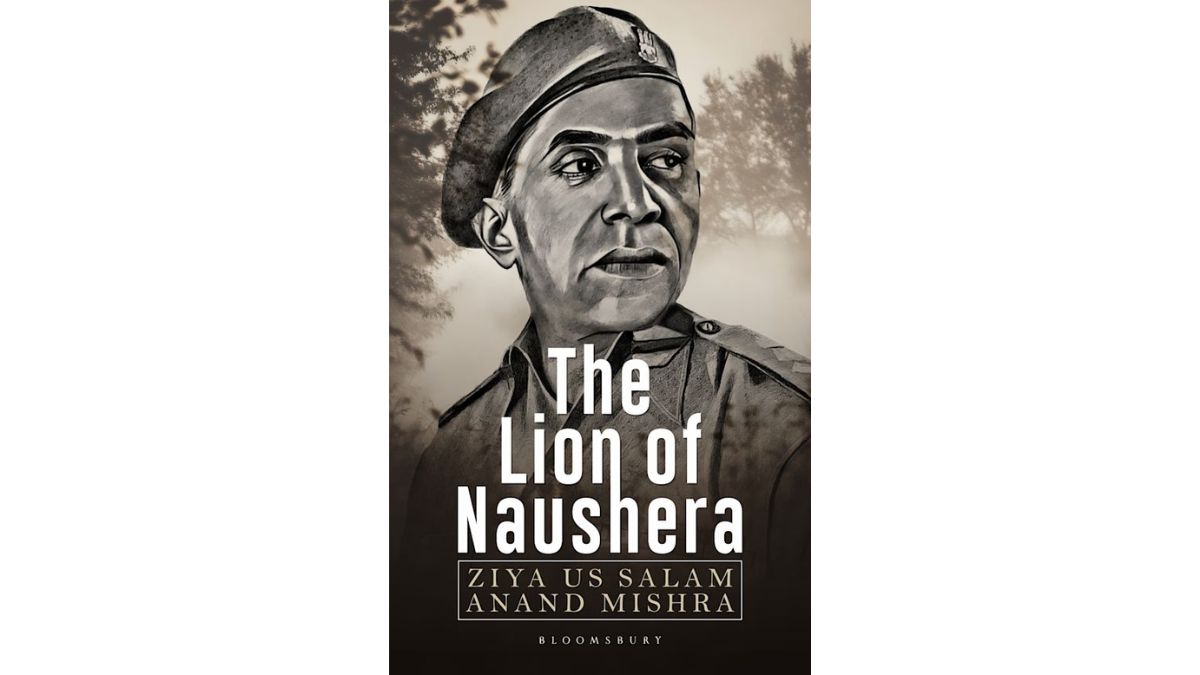'The Lion of Naushera' review: The story of a Muslim soldier who died for India

The book 'The Lion of Naushera'—written by Anand Mishra and Ziya Us Salam and published by Bloomsbury—is much more than just a biography of Brigadier Mohammad Usman.
It is an unapologetic counter-narrative to the Hindu-Muslim divisive binaries, dismantling corrosive stereotypes. The book vividly notes the life of the Muslim officer who, at the time of the Partition, rejected lucrative offers from Pakistan’s military top brass and chose to serve the Indian Army with unshakable loyalty.
“The eyes of the world are on us … We must not falter, we must not fail them … India expects everyone to do his duty.”
These stirring lines, part of a Special Order issued by Usman before the decisive 1948 battles for Jhangar and Naushera, capture the essence of a man hailed as the “Lion of Naushera".
Just twelve days before his 36th birthday, Usman led his men to reclaim these strategic posts from Pakistani forces, who soon placed a ₹50,000 bounty on his head. He fell to enemy shelling in July 1948, leaving behind a legacy steeped in sacrifice.
Fluent in English, Urdu, Hindi, and Pashto—thanks to his family’s roots in Herat—Usman would recite Quranic verses before battle, drawing spiritual strength before leading from the front.
Commissioned in 1935 and a Captain by 1941, he earned a reputation as “the man who knew no fear".
His service as the Commander of the 14th Battalion of the 10th Baloch Regiment only solidified his stature. His refusal to join Pakistani forces, despite personal appeals from even Muhammad Ali Jinnah, remains a defining testament to his belief that patriotism transcends religion.
Born on July 15, 1912, in the Mau district of Azamgarh division in Uttar Pradesh, Usman’s legacy offers a contrast to the region often branded as an extremist hub with footprints of the terrorist outfit Indian Mujahideen, whose operatives hailing from Azamgarh were arrested for multiple conspiracies, including two who were gunned down in the 2008 Batla House encounter in the capital.
Usman’s life rebukes the sectarian taunts of “Babur ki aulad” or “Aurangzeb ki aulad". Usman’s admirers reminded such voices that they would be better off calling fellow citizens “Usman ki aulad” (Usman’s progeny). Ironically, Brigadier Usman had no children.
The book also exposes the cultural amnesia surrounding Usman’s legacy. Despite his unmatched heroics, no mainstream Hindi film has ever been made about him.
A Vinod Khanna project in the late 1980s titled 'Usman' collapsed after distributors balked at the absence of a heroine and romantic songs.
The authors rightly point out that post-1980s Bollywood rarely cast Muslim men as patriotic heroes, revealing how cinema’s shifting politics sidelined real-life icons.
Defying the colonial military system’s preference for aristocracy, in 1932, Usman earned his place at the Royal Military Academy, Sandhurst, through sheer merit. His story is neither a rags-to-riches arc nor one of deprivation: it is, at its very core, the chronicle of a soldier whose life was defined by discipline, merit, and sacrifice.
In today’s climate of polarisation, 'The Lion of Naushera' stands out as both a stirring military biography and a reminder that courage and loyalty for the nation are not bound by religion.
Name: The Lion of Naushera
Publisher: Bloomsbury
Price: 399
No. of pages: 148
Books Review